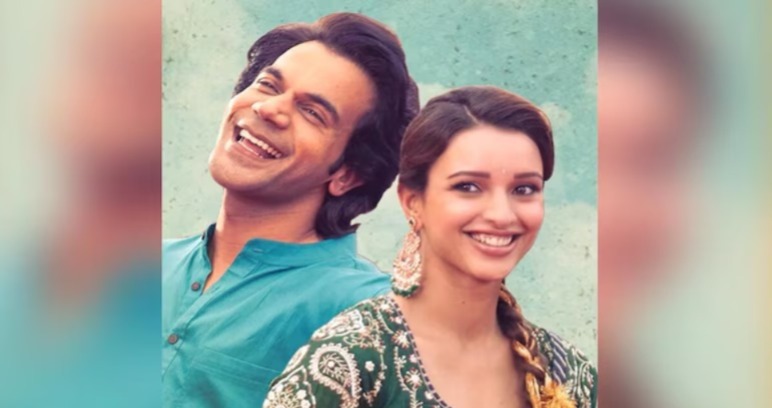The film Vicky Vidya Ka Woh Wala Video, starring Rajkummar Rao and Triptii Dimri, arrives with a promise of dark comedy, intrigue, and satire. Directed by debutant filmmaker Amit Ravindranath Sharma, the film is set in a contemporary Indian setting that deals with love, relationships, and the absurdity that often accompanies them. However, despite the allure of an unconventional plot and the star power of the cast, Vicky Vidya Ka Woh Wala Video ultimately falters in its execution. What could have been a sharp commentary on modern relationships, the obsession with technology, and societal taboos turns into an ungainly mess, oscillating between absurdity and complete nonsense. The premise of the film is straightforward yet full of potential. Vicky (Rajkummar Rao) and Vidya (Triptii Dimri) are a couple on the verge of marriage, excited about their future together. As they prepare for their wedding night, things take a bizarre turn when a ‘suhagraat CD’ goes missing. The video, which is supposed to be an intimate record of their first night together, becomes the central piece of the film’s narrative, creating a storm of misunderstandings, paranoia, and conflict. In the hands of a skilled director, this could have been a goldmine for dark humor and an exploration of deeper societal issues like privacy, voyeurism, and moral hypocrisy. However, Sharma’s debut directorial venture gets too lost in its own ambitions, meandering through incoherent storylines and caricatured characters that never develop into anything substantial. What could have been an exciting exploration of the absurdity of modern life becomes weighed down by excessive gimmicks and tonal inconsistencies. From the very beginning, Vicky Vidya Ka Woh Wala Video struggles to find its footing. The pacing of the film is uneven, as the narrative swings from one comic set piece to another without any real cohesion. The film’s reliance on absurdist humor feels forced, and there are moments where the script seems unsure whether to embrace full-blown comedy or steer toward a more serious satire. This confusion is evident in the characters themselves, who behave in increasingly bizarre ways that defy logic even within the context of the film’s absurd world. For instance, Vicky and Vidya, the central couple, are introduced as grounded individuals, but they quickly morph into cartoonish versions of themselves. Their reactions to the missing video feel exaggerated and unbelievable, especially as the film attempts to milk humor out of their discomfort and paranoia. Instead of building tension or making a coherent statement, the film becomes a series of disconnected events that fail to tie together meaningfully. One of the film’s few redeeming qualities is its lead cast. Rajkummar Rao is known for his versatility, and his portrayal of Vicky, while far from his best, still offers moments of charm. Rao tries to inject sincerity into his role, but even his talent cannot fully salvage the clumsy writing. His character is meant to be the everyman caught in an extraordinary situation, yet Vicky often comes across as too naive and ridiculous for the audience to root for him. Triptii Dimri, on the other hand, shows promise as Vidya, though she, too, is bogged down by a poorly written character arc. Dimri has a certain screen presence, but her role is often reduced to reacting to the absurd situations around her. Her chemistry with Rao is lukewarm at best, and their interactions lack the necessary emotional depth to engage the audience fully. It feels as though both actors are trying to make the best out of a chaotic script that does them little justice.
Vicky Vidya Ka Woh Wala Video Review: An Ungainly Mess That Sways Between The Absurd And Asinine

